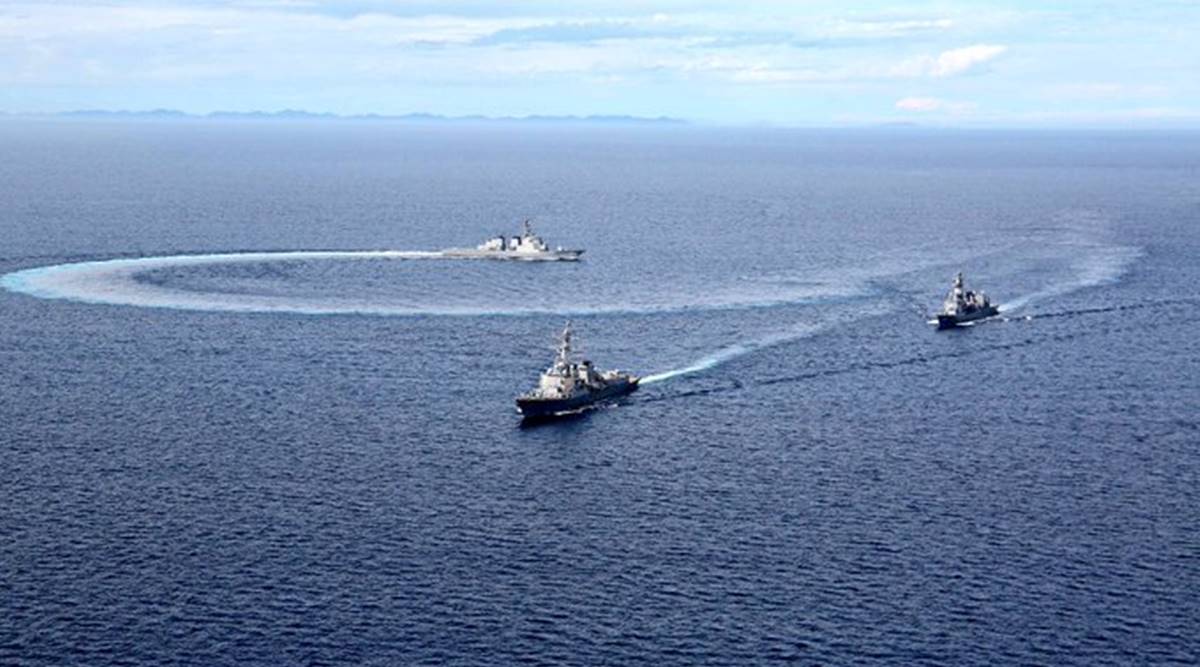 Malabar exercise is a multilateral naval exercise that includes simulated war games and combat manoeuvres. (Photo: Twitter/@indiannavy)
Malabar exercise is a multilateral naval exercise that includes simulated war games and combat manoeuvres. (Photo: Twitter/@indiannavy)Phase 1 of the Malabar Naval Exercise kicked off on Tuesday, marking the biggest such joint exercise of India, the United States, Japan and Australia in a decade.
The Malabar exercise this year is especially significant with the participation of Australia, thus covering all member of the Quad, an informal group of the four largest democracies in the Indo-Pacific region.
“The participants of Exercise Malabar 2020 are engaging to enhance safety and security in the maritime domain. They collectively support free, open and inclusive Indo-Pacific and remain committed to a rules based international order,” the Ministry of Defence said in a statement.
According to the Defence ministry, the exercise this year has been planned on a ‘non-contact – at sea’ format in view of the Covid-19 pandemic. This means there will be no contact among military personnel of the four countries.
Also Read | Explained: The purpose, participants of the Malabar Navy Exercise
Malabar exercise is a multilateral naval exercise that includes simulated war games and combat manoeuvres. It started in 1992 between the Indian and US navies. Japan joined in 2015. This year, the exercise will be held in two phases, the first from Tuesday off the coast near Visakhapatnam, and the second in the Arabian Sea in mid-November.
The exercise comes at a time when the ties of all the four participating nations are at a significant low with the major power in the region – China.
While India is locked in the worst border deadlock with China in decades, US’s relations with Beijing have deteriorated recently over a range of issues, including the Covid-19 pandemic and economic sanctions.
According to Reuters, Australia’s ties with China suffered after the country led calls for an international inquiry into the coronavirus pandemic, and Beijing imposed trade sanctions on Australian beef and barley. Japan, meanwhile, has a dispute with China over ownership of islands in the East China Sea.
Reacting to the Malabar exercises Tuesday, Chinese Foreign Ministry spokesman Wang Wenbin told a media briefing in Beijing, “We hope that relevant countries’ military operations will be conducive to peace and stability in the region, instead of the contrary,” PTI reported.